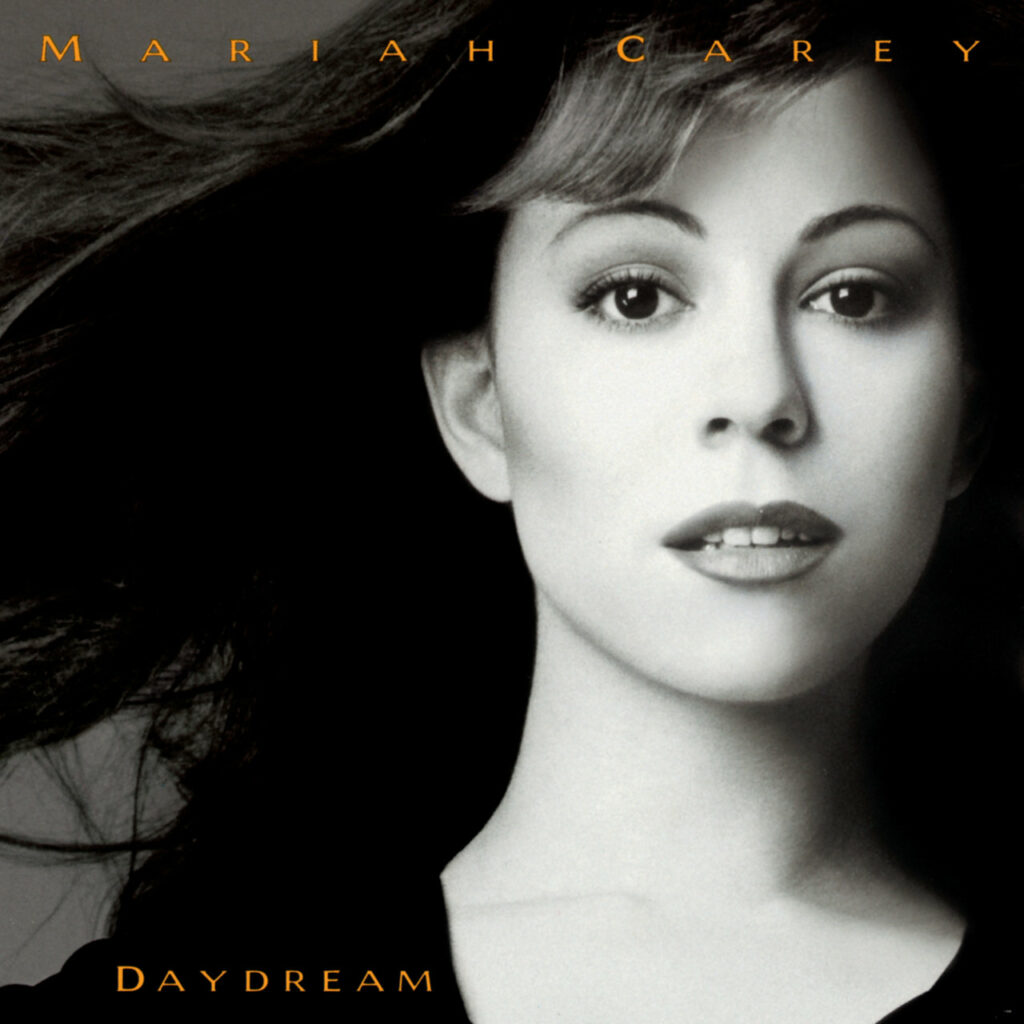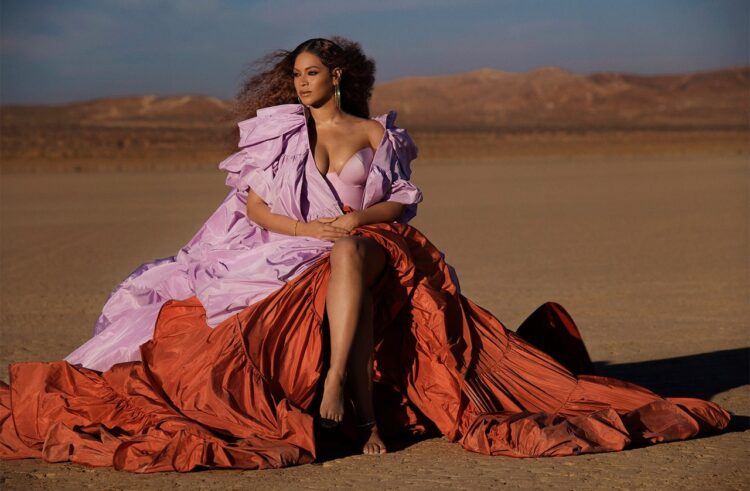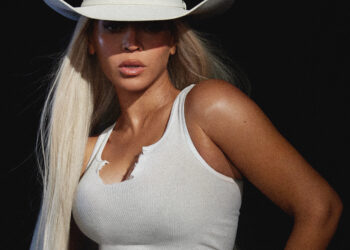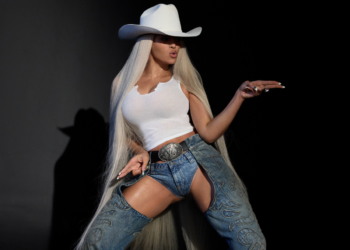Beyoncé is no stranger to the Grammys. In a career that spans over two decades, the global icon has earned 23 trophies.
Having won three awards as a member of Destiny’s Child and one as The Carters with her husband JAY Z, many of Beyoncé’s rightfully-earned statues were for her Dangerously in Love debut album (46th Grammy Awards in 2004) and her third album I Am…Sasha Fierce (52nd Grammy Awards in 2010). At the latter ceremony, she made history as the first woman to win six Grammys in one evening.
With four nominations this year for The Lion King: The Gift album and the Homecoming: The Live Album, Beyoncé extends her reign as the most nominated female artist in Grammy history.
While her many musical contributions have been considered (and have won) in various coveted album fields, she is noticeably absent in major categories this year.
Despite being shut out, Beyoncé might have a shot at becoming the gold standard in the Best Pop Vocal Album category. This nod, a career first for the entertainer in this album race, is for the LP she crowned a “love letter to Africa.”
That said, if she can edge out her pop contemporaries (Taylor Swift, Ariana Grande, Billie Eilish, Ed Sheeran), this win could recognize her as the first Black female solo act to take this prized Grammy.
There are two alarming questions, though. Why is this Beyoncé’s first nomination in this category? And, why hasn’t a Black female solo performer won this award? Well, the pop album category has only been around for 26 years. It was introduced as Best Contemporary Album in 1968, with The Beatles prevailing for their Sgt. Pepper’s Lonely Hearts Club Band album.
The award was discontinued a year later and remained inactive for 27 years, before it was revived as Best Pop Album in 1995. This honor received its current name change in 2001 at the 43rd Grammy Awards.
Over the years, 12 white female solo artists have won this award. Kelly Clarkson, an American Idol winner, has received the most nominations, with five total. She, along with Adele, are the top winners, with two wins each.
One of the main reasons Beyoncé and other women of color aren’t saluted as Best Pop Vocal Album winners are the significant difference in the nominations ratio.
In 26 years of its existence, only six black women (including Beyoncé) have been nominated. The list consists of Mariah Carey (Daydream, 1996), Toni Braxton (Secrets, 1997), Janet Jackson (All for You, 2002), Leona Lewis (Spirit, 2009), and Rihanna (Loud, 2012). On top of that, all have only been nominated once, unlike their white counterparts who have mostly seen two or more nominations in this category.
This overall lack of true representation for women of color is quite puzzling, considering an artist like Carey, who has been heavily a part of the contemporary pop sector with most of her work.

Take Daydream, her fifth studio album and one of the most critically-acclaimed releases of 1995. The album scored her six nominations at the 38th Grammy Awards in distinct categories, including Best Pop Album. However, she was robbed of making this golden moment happen for women of color after she lost to music legend Joni Mitchell.
She also left the ceremony with zero trophies, causing many critics’ premature predictions to fall flat to the Recording Academy’s eyebrow-raising decision.
Carey’s final two albums of the ’90s (Butterfly, Rainbow) never had a chance at winning this category (or for any), as they weren’t nominated, which is an even more disturbing snub. Even years later, the elusive chanteuse continues to have her bodies of work overlooked by the Recording Academy.
For example, why is Carey’s 2018 Caution album her fourth ignored release in the past ten years? Is it the Best New Artist jinx or are we missing something? But that’s a deeper conversation.
Oddly enough, Beyoncé has received the same fate in this race. What’s different about her omission is that the material is often miscategorized, and sent to compete in the R&B field. I Am… Sasha Fierce was far more pop-oriented, especially the A-side that featured soft-rock standards, to be nominated for Best Contemporary R&B Album.
If the grand ballad “Halo” could win Best Female Pop Vocal Performance, why is it a stretch for the album to be nominated for Best Pop Vocal Album and actually win over The Black Eyed Peas, Pink and Kelly Clarkson?
Going beyond Black female solo artists, Black solo acts, in general, have rarely been recognized in this category. Seal, CeeLo Green and Ray Charles, who won the award in 2005, contribute to nine Black artists having their solo albums considered here. Nine.
What this ethnic diversity drought suggests to consumers and the music industry is that Black performers can create popular music with commercial appeal. Still, it just can’t be labeled anything but R&B.
So the question becomes, what are pop vocals? According to AllMusic, pop is defined as “any music based on memorable melodies, repeated sections (usually, but not always verses and choruses), and a tight, concise structure that keeps the listener’s focus on those elements.” The outlet also mentioned that the musical art form is influenced by R&B and adult contemporary.
Much like Carey’s Daydream album, Brandy’s Never Say Never has strong adult contemporary elements that can be stylized as pop-driven music. Yet, the Vocal Bible’s sophomore LP was placed in the Best R&B Album category in 1999. What made this work a candidate for the latter category? The soulful belting? Or her microbraids?
This not only happens for Black female solo artists but to groups as well. Look at TLC, whose FanMail album contended for Best R&B Album in 2000. Their first number one album on the Billboard 200 probably could have been challengers for Best Pop Album against Backstreet and Ricky Martin, who both had chart-topping hits on the Hot 100 and other respective Billboard charts that catered to their commercial sounds.
TLC’s empowering hit “Unpretty” won for Best Pop Performance by a Duo or Group with Vocals. So, why not Fanmail in the pop album category? If properly submitted by LaFace and Arista Records and the nod entry carefully reviewed by the Recording Academy, this alternative move may have given Best R&B Album contenders that year like Whitney Houston and Brian McKnight their best chance at an R&B win.
As mainstream female artists like Ariana Grande and Taylor Swift continue to make inroads on pop charts with their frequent dips in the varied pond of genres, particularly R&B, the Recording Academy should strongly consider rebranding the Best Pop Vocal Album category to its original name: Best Contemporary Album.

The sound of The Lion King: The Gift, which features a host of universal music A-listers, is described by Beyonce as a “sonic cinema.” She noted that this collection of songs is a “mixture of genres and collaboration that isn’t one sound. It is influenced by everything from R&B, pop, hip-hop, and Afrobeat.”
Considering the soundscape of The Gift doesn’t show up on one broad music rubric, an update to the pop album category’s current name and description could give Beyoncé and other women of color the overdue attention they rightfully deserve as major forces in this industry.
That way, walking the fine of pop and urban sounds is no longer a tightrope when it comes to them being nominated as well as winners.
To find out if Beyoncé has enough roar for The Lion King: The Gift to win Best Pop Vocal Album, make sure to watch the 62nd Annual Grammy Awards, hosted by Alicia Keys, on Sunday, Jan. 26, 2020, at 8 p.m. EST / 5 p.m. PST on CBS.




